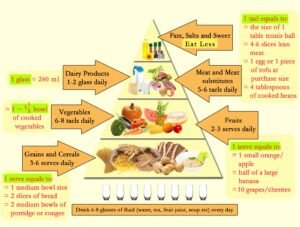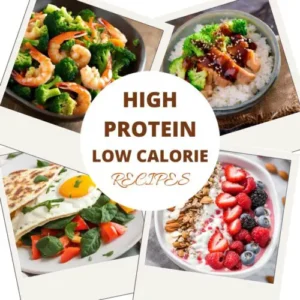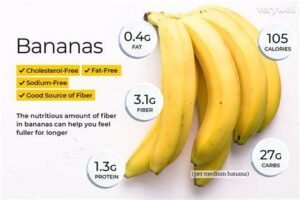Multivitamins for Athletes: Beyond the Basics
“Hey there, athletes and fitness enthusiasts! Let’s tackle a common misconception head-on: multivitamins for athletes are often seen as just an unnecessary supplement. Many believe that if you’re eating right, there’s no need for additional vitamins. But here’s the deal—when you’re pushing your body to its limits, your nutritional needs can skyrocket. Athletic multivitamins come into play not just as a backup but as a crucial component in boosting performance and overall health.”
Click to see another blog
Why Multivitamins Matter for Athletes
Athletes often subject their bodies to intense physical stress, which increases their nutritional demands. Even with a well-rounded diet, it can be challenging to get every essential micronutrient. That’s where multivitamins step in. They act as a nutritional safety net, ensuring you get the daily vitamins and minerals needed to maintain high energy levels, muscle recovery, and immune function.
The Role of Key Vitamins and Minerals
- Vitamin B12: Vital for energy production, it’s a must-have in your diet for those long, grueling training sessions.
- Iron: Especially crucial for endurance athletes, as it helps with the transportation of oxygen in your blood.
- Calcium and Vitamin D: These are your bones’ best friends. Strong bones mean a reduced risk of fractures—a common concern for all athletes.
- Magnesium: It aids in muscle recovery and regulates muscle function, which can help ward off cramps during intense workouts.
These are just a few examples, but they highlight why a multivitamin isn’t just about avoiding deficiencies; it’s about enhancing your physiological functions and training capacity.
Why Choose Sports Multivitamins?
Not all multivitamins are created equal, especially when it comes to athletic performance. Sports multivitamins are formulated specifically for the high demands of athletes. They often contain higher concentrations of the vitamins and minerals that are most used up during physical activity. Plus, they’re tailored to improve recovery times and reduce the oxidative stress that comes with intense exercise.
Wrapping Up the Basics
Understanding the synergy between your body’s needs and what multivitamins offer can significantly impact your performance and health. Remember, while a balanced diet is foundational, for those pushing their limits daily, supplementing with a well-chosen multivitamin can be the key to maintaining peak performance.
So, before you dismiss the idea of multivitamins, consider what gaps might exist in your diet, especially under the strain of rigorous training. A little boost from the right multivitamin might just be what you need to keep your performance at its peak!
Best Multivitamins for Different Types of Athletes: Finding Your Perfect Match
There’s a common belief that one multivitamin fits all, but when it comes to athletes, nothing could be further from the truth. The reality is, different athletes have different needs based on their gender, the sports they engage in, and their individual health profiles. Let’s break down the best multivitamins for various types of athletes, ensuring you get the tailored support your body craves.

Best Multivitamin for Male Athletes
Male athletes often require specific nutrients to support muscle growth, hormone regulation, and energy metabolism. A quality multivitamin for male athletes might be packed with higher levels of B vitamins for energy, zinc which supports testosterone production, and magnesium for muscle recovery. A popular choice among professionals is the “Performance Enhancer Multivitamin”, specifically designed to cater to the rigorous demands of male athletes, enhancing endurance and strength.
Top Multivitamins for Female Athletes
Female athletes face unique challenges, including iron deficiency due to menstrual blood loss and the need for bone-strengthening nutrients like calcium and vitamin D to prevent osteoporosis. The “Women’s Athletic Blend” is an excellent multivitamin choice, offering a balanced mix of iron, calcium, vitamin D, and folic acid, which is particularly important for women of childbearing age. This tailored approach helps address the specific nutritional gaps that female athletes often encounter.
Essential Vitamins for College Athletes
College athletes juggling academics and sports need a multivitamin that supports both mental and physical stamina. “Academic Athlete’s Formula” combines vitamins A, C, E, and a robust B-complex to boost immunity and mental clarity while ensuring the body meets its daily nutritional needs. It’s a perfect blend for the younger athlete looking for an all-in-one solution to maintain peak performance in sports and studies.
Natural Multivitamin Options for Vegan Athletes
Vegan athletes often struggle to get certain nutrients that are primarily found in animal products, such as vitamin B12, iron, and omega-3 fatty acids. A well-formulated vegan multivitamin, such as “Plant-Powered Athlete’s Multivitamin”, ensures that you’re not missing out on essential nutrients. It includes plant-based sources of omega-3s, more bioavailable forms of iron, and methylcobalamin (a natural form of vitamin B12) to support energy levels and overall health.
Choosing the Right Fit
Navigating through the plethora of multivitamin options can be overwhelming, but understanding the specific needs based on your athletic profile is key to choosing a product that enhances, rather than just supplements, your diet. Whether you’re lifting weights, running marathons, or scoring goals, there’s a multivitamin that matches your athletic lifestyle.
Each athlete’s body demands a unique nutritional strategy to function at its best. By selecting a multivitamin tailored to your specific needs, you ensure that you’re not just filling gaps but optimizing your body’s performance and recovery. Keep these tips in mind as you choose your daily multivitamin, and never underestimate the power of personalized nutrition!
Choosing the Right Multivitamin: It’s Not Just About Picking Any Bottle Off the Shelf
You might think that picking any multivitamin off the shelf will do the trick. Well, think again! When it comes to selecting the right multivitamin for athletes, it’s crucial to dig a little deeper. Understanding what makes a multivitamin effective can significantly impact your performance and recovery. Let’s navigate through the essentials of choosing a multivitamin that genuinely complements your athletic lifestyle.

What to Look for in a Multivitamin
Ingredient Quality: Start with the basics. High-quality ingredients mean better bioavailability—this means your body absorbs these vitamins more effectively, which translates into better performance. Look for brands that specify their sourcing and adhere to good manufacturing practices.
Tailored Formulas: As we discussed earlier, not all athletes have the same needs. For instance, endurance athletes might benefit from multivitamins with higher antioxidants to combat oxidative stress from long training sessions. “Endurance Vitamins for Athletes” is a great search term when looking for products tailored to long-distance runners or cyclists.
Third-Party Testing: Reliable multivitamins often boast third-party testing. This adds an extra layer of trust, verifying that what’s on the label is what’s in the bottle. Certifications from bodies like NSF or USP can be a good indicator of quality.
Multivitamin Reviews by Athletes
Before you jump the gun, see what other athletes have to say. Multivitamin reviews can provide real-life insights into how effective a supplement is in practice. Searching for “multivitamin reviews by athletes” can lead you to testimonials and forums where sports enthusiasts discuss what works and what doesn’t. Remember, a multivitamin that works wonders for one might not suit another, but noticing patterns in feedback can guide your choice.
Common Features in Effective Multivitamins for Athletes
Comprehensive Nutrient Profile: Your multivitamin should cover a broad spectrum of nutrients. While vitamins C and E are great for everyone, athletes might need more specific nutrients like B vitamins for energy metabolism and Vitamin D for bone health.
Absorption Enhancers: Some multivitamins include ingredients like black pepper extract (bioperine) which enhances absorption. This can be a game-changer in how effective a multivitamin is.
No Unnecessary Additives: Athletes should avoid multivitamins with excessive fillers, artificial colors, or preservatives. These can be counterproductive and hinder your health and performance goals.
click to see another blog
Wrap-Up: Making an Informed Decision
Choosing the right multivitamin isn’t just about the flashy labels and marketing jargon. It’s about understanding what your body needs to perform at its peak. By selecting a multivitamin with high-quality ingredients, tailored to the needs of athletes, and verified by third parties, you’re setting the stage for optimal health and performance.
Take your time, do your homework, and remember: the best multivitamin for you is the one that meets your specific athletic and health requirements. Tune in for more insights on common mistakes to avoid when choosing multivitamins in our next section!
Navigating Common Mistakes When Choosing Multivitamins for Athletes
A lot of folks think that if a multivitamin is marketed towards athletes, it must be just what they need. However, choosing the right multivitamin isn’t as straightforward as picking the most popular one or the one your gym buddy recommends. Let’s talk about some of the common pitfalls you might encounter when selecting a multivitamin, and how to steer clear of them.

Overlooking Specific Needs
One of the biggest mistakes athletes make is choosing a multivitamin without considering their specific nutritional deficiencies or the demands of their sport. For instance, if you’re involved in high-endurance sports like marathon running, you might need a multivitamin with higher levels of antioxidants to combat oxidative stress, different from what a weightlifter might require.
Always start with a health check-up or a dietary assessment. Knowing your blood levels for key nutrients can guide you to a multivitamin that specifically addresses your deficits.
Falling for Gimmicks(Tricks)
It’s easy to get swayed by multivitamins that promise miraculous results. Supplements boasting extreme benefits without scientific backing can be not only ineffective but also harmful. Instead of falling for flashy claims like “supercharged” or “performance-enhancing,” look for multivitamins that have a straightforward label and clear information about the benefits of each ingredient.
Ignoring Ingredient Quality
The source and quality of the ingredients in your multivitamin are crucial. Synthetic vitamins might be cheaper, but they can be less effective than their natural counterparts. For example, Vitamin E comes in natural (d-alpha-tocopherol) and synthetic forms (dl-alpha-tocopherol), with the natural form being more potent.
Always check the labels for the form of the vitamins included. Opt for natural sources and avoid multivitamins that contain unnecessary fillers or artificial additives.
Not Considering Bioavailability
Not all multivitamins are created equal when it comes to how well your body can absorb them. Bioavailability is a big deal because it determines how much of the vitamin your body can actually use. For example, Magnesium oxide is a common form found in many supplements but has poor absorption compared to other forms like magnesium citrate or magnesium glycinate.
When choosing a multivitamin, look for one that contains bioavailable forms of vitamins and minerals to ensure you’re getting the most out of each tablet or capsule.
Over-supplementation
More isn’t always better. Taking high doses of vitamins and minerals can sometimes lead to toxic effects. For instance, too much vitamin A can cause liver damage, and excess iron can lead to gastrointestinal issues and other problems.
It’s important to match your supplement intake to your dietary intake. If you already consume a nutrient-rich diet, your need for additional vitamins might be lower. Discussing your diet and lifestyle with a healthcare professional can help tailor your multivitamin intake accordingly.
Wrap-Up: Smart Choices Lead to Better Health (Multivitamins for Athletes)
Choosing the right multivitamin involves more than just grabbing a bottle off the shelf. It requires understanding your body’s needs, avoiding marketing traps, checking ingredient quality, considering bioavailability, and being mindful of over-supplementation. By avoiding these common mistakes, you can select a multivitamin that truly supports your athletic performance and overall health.
Educating yourself and possibly consulting with a healthcare provider can make a big difference in your choice. Remember, the best multivitamin for you is one that fills your specific nutrient gaps without causing excess. Stay tuned for more insights on how to integrate multivitamins into your training regimen effectively!
How to Integrate Multivitamins into Your Training Regimen
It’s a common myth that just popping a multivitamin each day is enough to meet all your nutritional needs as an athlete. But let’s clear the air: while multivitamins are incredibly beneficial, they’re most effective when properly integrated into your training regimen and aligned with your dietary habits. Here’s how to make sure your multivitamin works as hard as you do.
Timing Your Intake for Maximum Benefit
Timing can be everything when it comes to supplementation. To get the most out of your multivitamins, consider when you’re taking them. Water-soluble vitamins (like the B-vitamins and vitamin C) are best taken earlier in the day to help support energy levels during your workouts. Fat-soluble vitamins (like vitamins A, D, E, and K), on the other hand, should be taken with a meal that contains fat for optimal absorption.
Synergizing Diet and Supplements
Multivitamins should complement, not replace, a balanced diet. It’s crucial to ensure that your daily food intake is varied and rich in nutrients. For instance, if you’re using a multivitamin to boost your iron levels, consuming vitamin C-rich foods like oranges or bell peppers can enhance iron absorption from your meals.
Adjusting for Training and Competition Phases
Your nutritional needs can change based on your training intensity and competition schedule. During heavy training periods, you might need a multivitamin with higher levels of antioxidants to combat increased oxidative stress. Before a competition, adding a multivitamin with extra B-vitamins can help with energy production and focus.
Listening to Your Body
Every athlete’s body responds differently to supplements. If you notice any adverse effects like digestive upset or if you don’t feel any improvements in your health and performance, it might be time to reassess your choice. Consulting with a sports nutritionist can provide personalized insights into the best types of multivitamins based on your body’s reactions and your sport’s specific demands.
Regular Reviews and Adjustments
Just as you periodically tweak your training regimen, your multivitamin needs may also change over time. Regular check-ups with a healthcare provider can help determine if your multivitamin is still fulfilling your needs as your body and training demands evolve.
Making Multivitamins Work for You
Integrating multivitamins into your training isn’t just about swallowing a pill every morning—it’s about making strategic choices that enhance your performance and recovery. By syncing your supplement intake with your diet and workout routine, and adjusting as needed, you can ensure that your body is getting the right support at the right time.
Stay tuned for more actionable tips and in-depth guidance on maintaining peak athletic performance through smart nutrition and supplementation strategies!
Multivitamins for Athletes
When considering multivitamins for athletes, the decision extends beyond simply picking any product off the shelf. A well-chosen multivitamin enhances an athlete’s nutrition by addressing specific deficiencies and supporting overall health and performance. However, the effectiveness of these supplements can vary significantly based on several factors, including the athlete’s diet, the level of physical activity, and individual health needs.
Pros
Multivitamins for athletes are specifically formulated to support the high-energy demands and recovery needs that come with intense physical activity. These supplements typically include higher concentrations of key vitamins and minerals that play critical roles in energy production, muscle repair, and immune function. For example, a multivitamin that includes a range of B-vitamins can be instrumental in improving energy metabolism, essential for athletes who engage in long and strenuous workouts. Similarly, vitamins C and E can help mitigate oxidative stress associated with extensive physical exertion, aiding in quicker recovery and better overall health.
Cons
However, there are potential downsides to consider. Over-reliance on multivitamins can lead some athletes to underestimate the importance of a balanced diet. While multivitamins can provide crucial nutrients missing from the diet, they cannot replicate all the benefits of whole foods, which deliver fiber, antioxidants, and other beneficial compounds that supplements typically lack. Moreover, the risk of consuming excessive amounts of certain nutrients, which can lead to toxicity and other adverse effects, cannot be overlooked. It is also important for athletes to select multivitamins that are free from banned substances and to choose products that have been tested for purity and safety by reputable third-party organizations.
Final Verdicts
In conclusion, while multivitamins can play a beneficial role in an athlete’s nutritional strategy, they are best used in conjunction with a well-rounded diet tailored to the individual’s specific needs. Athletes should carefully evaluate their dietary intake and consult with nutrition experts or health care providers to select a multivitamin that effectively complements their diet and enhances their performance and recovery. This thoughtful approach ensures that athletes can benefit from both the direct effects of the multivitamin and the comprehensive health advantages of a balanced diet, leading to optimal health and peak athletic performance.
Frequently Asked Questions About Multivitamins for Athletes
Can I rely solely on multivitamins to meet my nutritional needs as an athlete?
Absolutely not! While multivitamins are great for filling in the gaps, there’s no substitute for a balanced diet. Think of multivitamins as your nutritional safety net that catches anything you might miss with your daily meals, not as your main source of nutrients.
How do I choose the right multivitamin for my specific sport?
Choosing the right multivitamin depends on the demands of your sport and your personal health needs. For example, if you’re into endurance sports like marathon running, look for multivitamins with antioxidants to help with recovery from long training sessions. Always consider consulting with a nutritionist who can guide you based on a detailed assessment of your dietary habits and training regime.
Are there any risks associated with taking multivitamins?
Yes, like any supplement, multivitamins come with potential risks if not used correctly. Overdosing on certain vitamins, especially fat-soluble ones like Vitamins A, D, E, and K, can lead to toxicity. Always stick to the recommended dosages and choose a reputable brand that adheres to safety standards.
Should vegan athletes look for specific types of multivitamins?
Definitely! If you’re a vegan athlete, you’ll need to pay extra attention to nutrients that are hard to get from a plant-based diet, such as Vitamin B12, iron, zinc, and omega-3 fatty acids. Look for vegan-certified multivitamins that specifically cater to these deficiencies.
How often should I review and adjust my multivitamin intake?
It’s a good idea to review your multivitamin intake at least annually or whenever there’s a significant change in your diet, health status, or training program. Your nutritional needs can change over time, so adjusting your supplements to fit those needs is crucial for maintaining optimal health.
Can children who are athletes take the same multivitamins as adults?
Children have different nutritional needs than adults, so it’s important to choose a multivitamin that’s formulated for their age group. Additionally, the dosages and nutrients are balanced to support a child’s growth and development, which can differ significantly from what adult athletes need.
Is it better to take a multivitamin in the morning or at night?
For most people, taking a multivitamin in the morning with breakfast is a good practice because it can help with absorption and utilization of the vitamins throughout the day. However, if you find that certain vitamins upset your stomach, taking them with dinner might be a better option. Listen to your body and adjust accordingly.





